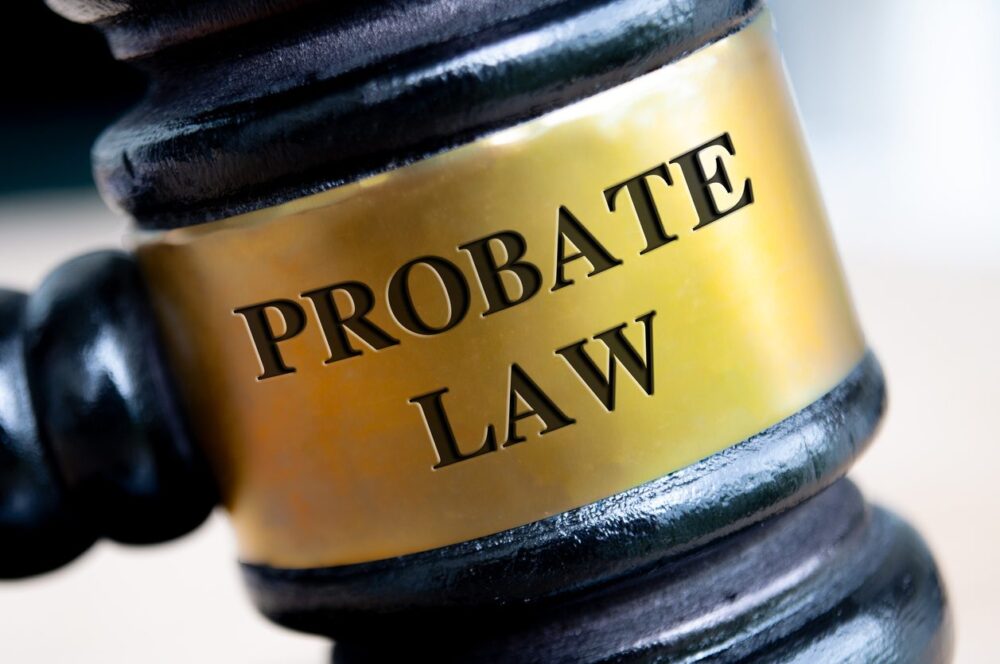Avoiding Probate
When considering the management and distribution of an estate, the term ‘probate’ often emerges. Probate is a legal process of administering the estate of a deceased person, resolving any outstanding debts, and distributing the remaining assets to the rightful beneficiaries. In California, as in many states, probate involves a court process that ensures the deceased individual’s assets are distributed according to their will or state law.
While the legal process is designed to protect the deceased’s assets and ensure a fair distribution, it can often be a lengthy and costly procedure, leading many individuals to explore ways to avoid it. Shoup Legal, estate planning attorneys in Temecula and throughout Southern California, has the experience and compassion to lead you through an estate planning process that not only carries out your wishes but also helps your heirs who want to avoid court in California.
What is Probate?
Probate is a process that involves the identification and gathering of a deceased person’s assets, paying off any debts, and distributing the remaining estate to beneficiaries as outlined in the individual’s will or determined by the state’s intestacy laws if there is no will.
The process to probate an estate in California can be a lengthy and costly affair, often resulting in delays in the distribution of assets to the beneficiaries. This is why many individuals seek strategies to avoid probate and streamline the estate distribution process.
There are several strategies one can employ to avoid this process, most notably by establishing a living trust, understanding how to plan an estate, and utilizing joint ownership.

Using Living Trusts to Avoid Probate
A living trust is a legal entity that holds ownership of an individual’s assets during their lifetime and can continue after their death. By transferring assets to a trust, the estate can bypass probate proceedings when distributing assets to the trustee, offering a more efficient and private means of estate distribution.
Revocable Living Trusts
This type of trust is a legal document that allows an individual, known as the grantor, to transfer ownership of their assets, with the grantor retaining control of the assets during their lifetime. Upon the grantor’s passing, the assets are then distributed to the beneficiaries without going through probate. To learn more about trusts, read our previous article “How Does a Living Trust Work in California?”
When created properly, this type of trust allows a seamless transfer of assets to their heirs upon their passing, without the need for probate. See also “How to Create a Living Trust in California.”
Wills vs Trusts
It is imperative to understand that a will, while it may stipulate the wishes of the deceased, is generally required to go through probate. Please see “Can a Will Help You Avoid Probate in California?”
Strategies for Estate Planning
Establishing a comprehensive estate plan is crucial in ensuring the effective management and distribution of one’s assets. A well-crafted plan can help individuals minimize estate taxes, designate beneficiaries, and dictate the distribution of their assets according to their wishes.
Have a Professionally Prepared Estate Plan
The plan outlines an individual’s wishes regarding the management and distribution of their assets upon their incapacity or death. It typically includes a will, power of attorney, advance healthcare directive, and, in many cases, a trust to avoid probate.
Community Property and the Probate Process in California
In California, community property, which is property acquired during marriage, is generally subject to probate upon the death of one spouse. However, through careful planning, couples can structure their assets to minimize the impact of probate on their community property.
Financial Accounts That are Not Subject to Probate
Assets held in certain financial accounts, such as payable-on-death (POD) accounts, retirement accounts, and life insurance policies with designated beneficiaries, can bypass probate and directly transfer to the named beneficiaries upon the account holder’s death.

Understanding the Probate Process in California
Not all estates in California are required to go through the courts. Smaller estates, estates with assets held in a living trust, and those with assets passing by beneficiary designation or joint ownership may be exempt from probate. For more detailed information on the probate process, please read “An Overview of the Probate Process in California.”
Do All Estates Go Through Probate?
No, certain estates, such as those with surviving joint owners, assets held in a living trust, or those passing by beneficiary designation, may avoid court altogether. A married couple who own everything jointly should still consult with an attorney, however, to discuss a plan in the event that they pass away at the same time or close together.
The Role of a Probate Attorney
Shoup Legal, probate attorneys in Temecula and Southern California, can play a crucial role in guiding the executor or administrator of the estate through probate court proceedings. We ensure that all legal requirements are met, and if necessary, we represent the estate’s interests in court.
Avoiding Probate with Property Transfer on Death
Property transfer on death deeds in California allows individuals to designate beneficiaries who will inherit the real property upon the owner’s death without probate. This offers a convenient way to transfer real estate assets to intended heirs without court involvement.
Other Ways to Avoid Probate
Understanding the legal implications of ownership, revocable living trusts, and the treatment of bank and other accounts is essential for those looking to minimize the impact of probate on their estate.
Joint Ownership of Property
This form of ownership, particularly with rights of survivorship, enables the seamless transfer of property to the surviving owner without the need for probate. This form of ownership ensures that the property automatically passes to the surviving spouse or other joint owner upon the other owner’s death.
Smaller Estates
In California, estates valued at $166,250 or less can bypass the formal court process through a simplified probate procedure known as a small estate affidavit, making it a viable option for those seeking to avoid probate for modest estates.
Retirement Accounts
Accounts with designated beneficiaries are generally exempt from probate, allowing the assets to transfer directly to the beneficiaries without court involvement.
Call Shoup Legal
Our experienced team of attorneys can answer all of your questions, evaluate your specific situation, and provide sound advice regarding your estate planning options. The end result… peace of mind for you and allowing your heirs to avoid the stress and cost of probate court.

More Probate FAQs:
Why Does Probate Take So Long in California?
How Much Does Probate Cost?
Why Should I Avoid California Probate Court?
Can I Really Avoid Probate?
